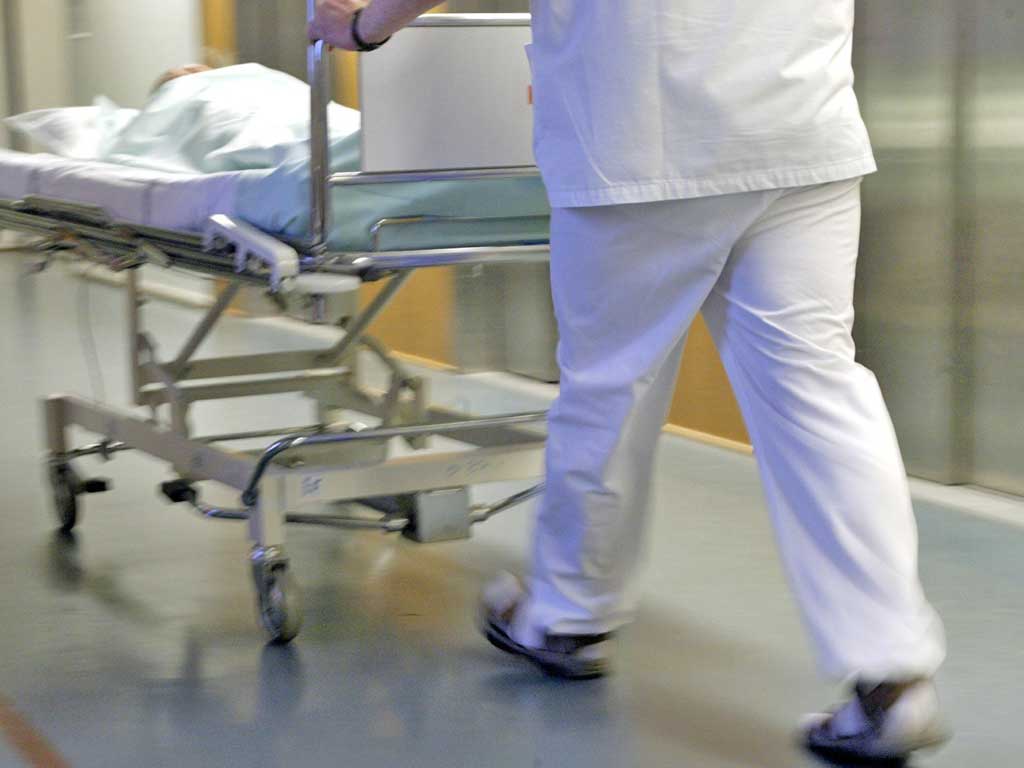Patients attack plan to reduce inspections of best hospitals
Families of those who died in the Mid Staffs scandal fear the new regime might not pick up poor care

Your support helps us to tell the story
From reproductive rights to climate change to Big Tech, The Independent is on the ground when the story is developing. Whether it's investigating the financials of Elon Musk's pro-Trump PAC or producing our latest documentary, 'The A Word', which shines a light on the American women fighting for reproductive rights, we know how important it is to parse out the facts from the messaging.
At such a critical moment in US history, we need reporters on the ground. Your donation allows us to keep sending journalists to speak to both sides of the story.
The Independent is trusted by Americans across the entire political spectrum. And unlike many other quality news outlets, we choose not to lock Americans out of our reporting and analysis with paywalls. We believe quality journalism should be available to everyone, paid for by those who can afford it.
Your support makes all the difference.Patient groups tonight attacked plans to radically scale back inspections of hospitals believed to be performing well. Under proposals being put forward by the Care Quality Commission (CQC), the top 20 per cent of hospitals might only be inspected every five years.
Groups representing the families of patients who died at Mid Staffordshire said the new regime might not pick up on deteriorating standards at previously well-run hospitals.
They said they feared it could inadvertently lead to another situation where problems could be covered up by hospital managements in institutions which were not being regularly inspected. At the time of the scandal Mid Staffordshire was officially one of the best performing trusts in the country.
In an interview with Health Service Journal, the new chair of the CQC David Prior said its current model was “fundamentally flawed”, leaving “our inspectors [doing] a bloody good job in difficult circumstances”. He added: “We are not in a position, at the moment, to really assess the safety and quality performance of hospitals.”
However, he believed they now had enough information coming to them from hospitals to identify risk, and that there were around 50 or 60 struggling hospitals in England that would be subject to a new intensive form of monitoring.
Inspections of hospitals will double in length – lasting between six and nine days and almost always include a patient representative in the form of an “expert by experience”.
New “deep dive” teams will be set up under the control of a new Chief Inspector of Hospitals. These would have about five permanent members of staff but would draft in experienced clinicians and senior NHS managers on secondment to assist them, probably for a few days at a time.
Mr Prior said the national teams would focus on the bottom 10 to 20 per cent of hospitals, which would receive “a lot of attention”. By contrast, he said that around 20 per cent of hospitals were “excellent” and would only be inspected once every five years unless their circumstances changed. A further 40 per cent classed as “good” would “probably” not be inspected “more than once every three years”, he added.
The plans were immediately attacked by patient groups. Julie Bailey, the head of Cure the NHS, said: “What we know about hospitals is that they are prone to ‘gaming’ the system and only providing the data that shows that they are performing. What really disturbs me about this is that the CQC is going to be entirely reliant upon information provided by hospitals without actually going in to see what is happening for themselves.”
Katherine Murphy, chief executive of The Patients Association, added: “While focusing on the bottom 10 to 20 per cent of NHS hospitals is understandable, reduced and less frequent inspections for top hospitals is a concern. Patients who use those hospitals will want to know what monitoring will be put in place so that standards do not slip.”
Join our commenting forum
Join thought-provoking conversations, follow other Independent readers and see their replies
Comments